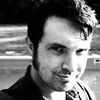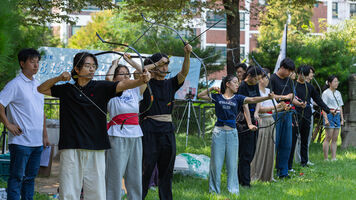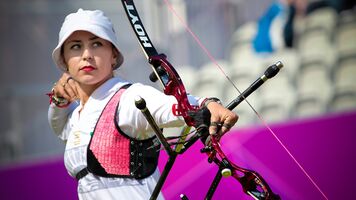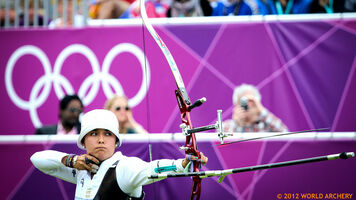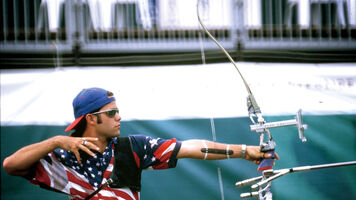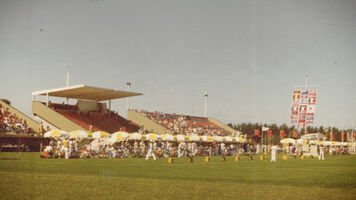1 year later: The journalist at Rio 2016
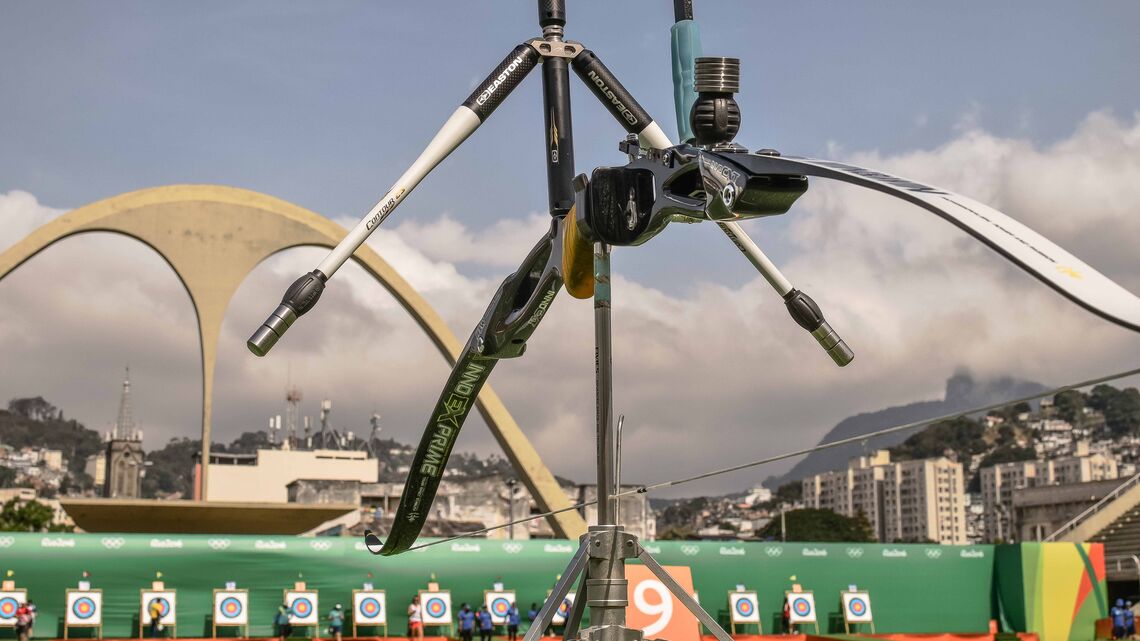
John Stanley spent nearly two months in Rio de Janeiro in 2016 working for the Olympic and Paralympic News Service. Here he shares his memories – and photographs – of the archery competition at the Sambodromo, one year on.
The Olympic News Service is a behind-the-scenes part of the show at every Games, both winter and summer. A mix of professional sports journalists and volunteers, the organisation is there to provide a baseline level of journalism, covering each sport, and solely for the benefit of the 10,000 or so accredited media from all over the world who descend on the designated city.
I was lucky enough to get the archery gig, plus a few days covering several other sports, too.
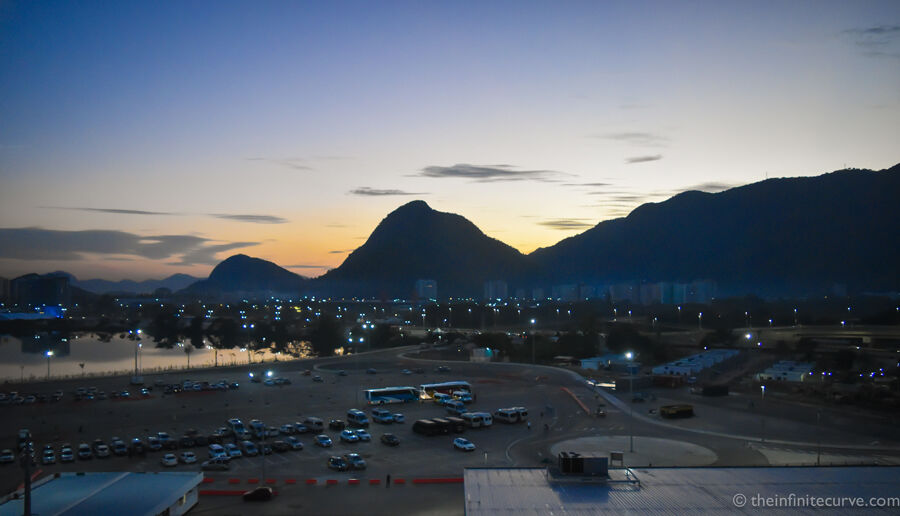
Rio is blessed with many, many beautiful views. This was the view from the eighth floor of the main press centre in the Olympic Park, although the archery competition was held a long way from this central cluster in the older, downtown part of Rio.
The Sambodromo played host to the archery. A crumbling concrete behemoth over a kilometre long, it was a venue more used to being the focus of the yearly Rio carnival. Unlike all the other Olympic venues, it was resolutely urban, stuck in the middle of a working-class neighbourhood called Cidade Nova, bounded by noisy, unclosed roads and next to several large favelas.
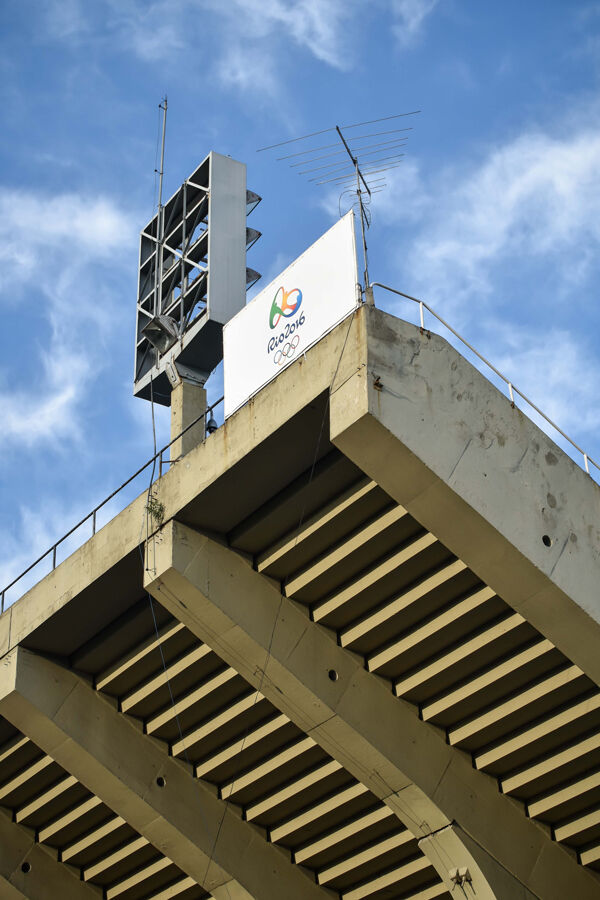
It was a place designed to come alive at night rather than in the day, and it’s fair to say it wasn’t always the prettiest place to go to work, but it truly had an atmosphere like nowhere else.
The Brazilian team were the first through the doors as the Sambodromo opened up for practice a couple of weeks before competition started. Ane Marcelle Dos Santos had form in this concrete creation; she danced at the venue during carnival as part of one of the city’s famous samba schools.
Note the house in the centre-left of the shot that had its laundry hanging out to dry for the duration of the Olympics and Paralympics – and probably right now, too.
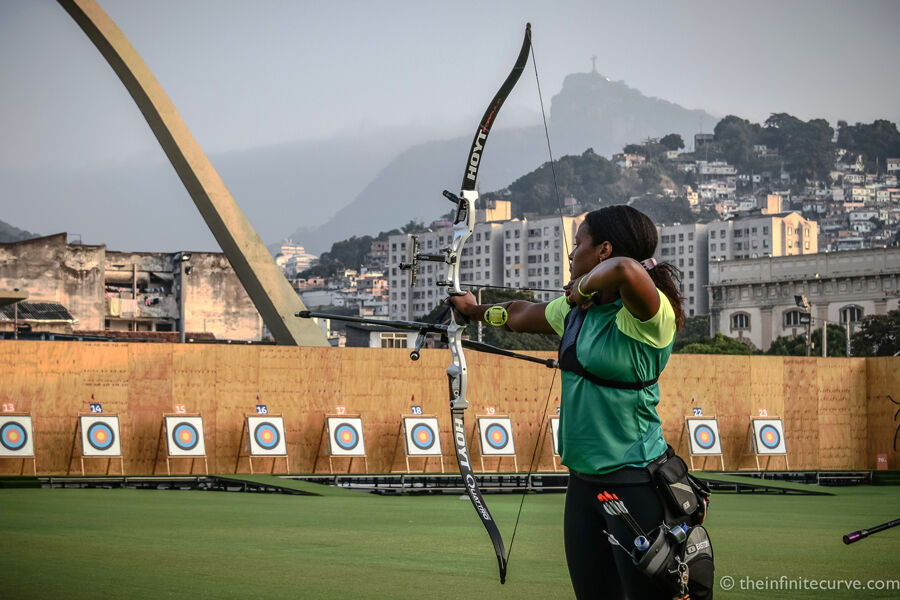
As the venue started to fill with 128 archers from all over the world, the long, slow, sunny days gave everything a pretty relaxed air.
One day passed much like another, despite the dramatic scenery and statue of Christ the Redeemer looking down on all. There was an enormous fire in one of the favelas to the rear one afternoon, which burned for hours and cast a pall of smoke across the glowing sunset.
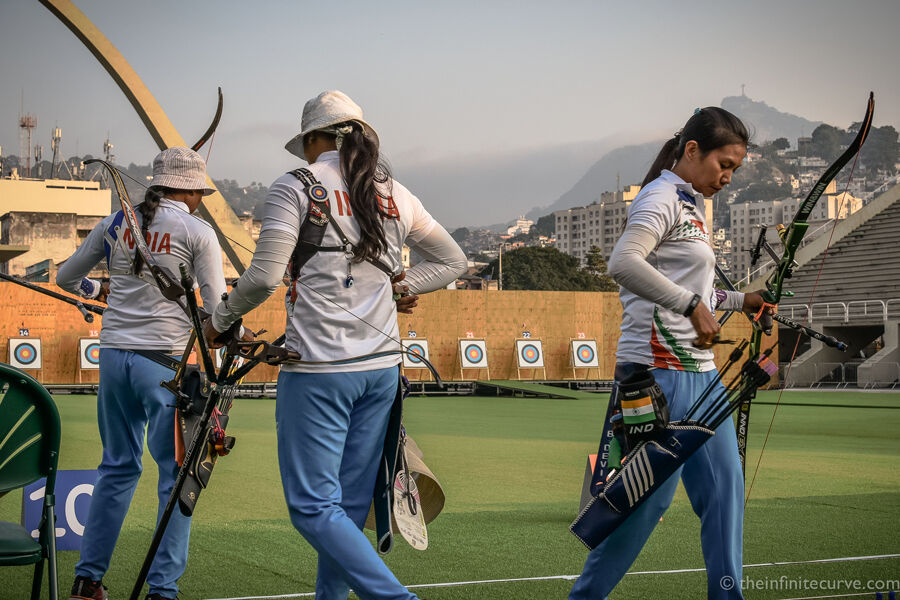
It was about a week before I heard my first gunshot, and it wasn’t the last. Distant, a little unreal. Dismissed by the Brazilian venue staff as ‘oh, that's nothing’.
Actually, I felt safe pretty much everywhere in Rio. It’s not Copenhagen, no, and you had to be more careful about where you were and aware of what you were doing, but it’s not as dangerous a city as it has sometimes been made out to be.
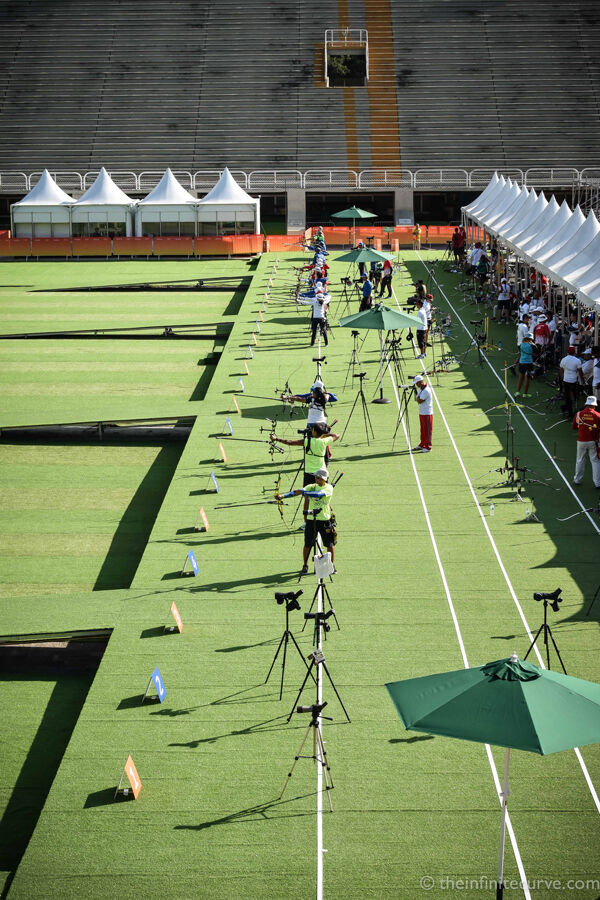
Three Korean news camera crews spent the three whole days in the Sambodromo hanging around doing nothing, waiting.
When the Korean team finally turned up – in limousines – for a relaxed nose around the place, the poor journalists leapt into action like shipwrecked men suddenly finding a barrel of water, thrusting microphones under bemused, laughing noses.
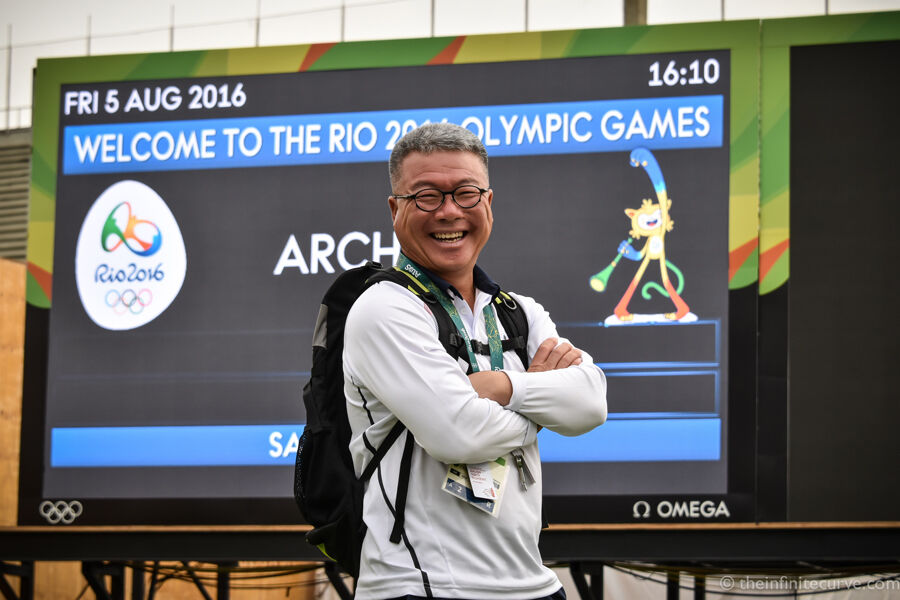
Just a couple of days before competition started, the venue finally got a last-minute makeover with ‘the look’, the Olympic colours and branding covering up the concrete and plywood.
Teams were allowed to acclimatise by shooting in the main finals arena; with four targets up instead of two. I took this picture from one of the camera towers a couple of evenings before the off.
You could sense the tension rising, and what was at stake.
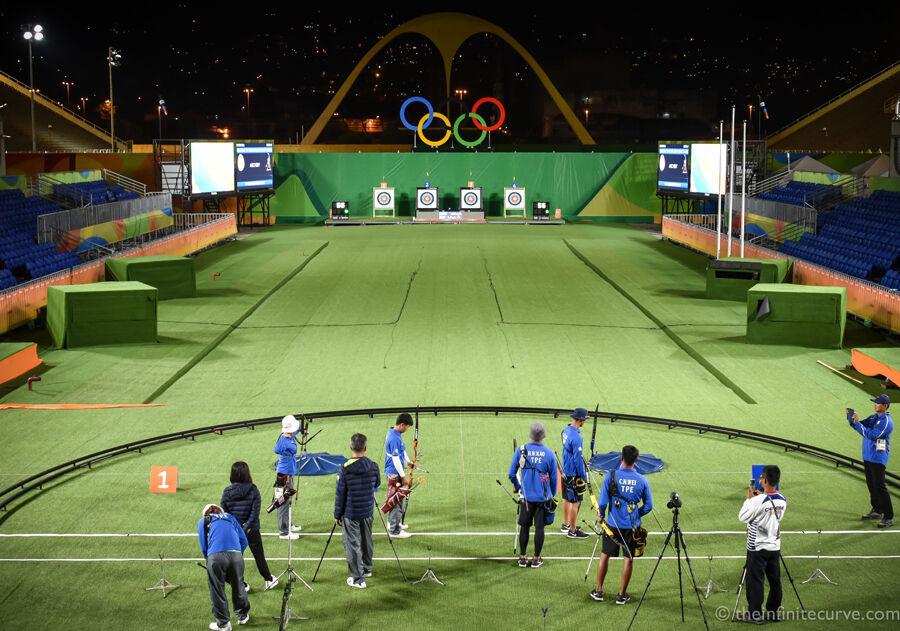
This was the media centre, which would fill to standing-room-only for press conferences and the ranking round. Someone estimated that when we were full, we had over $250,000 worth of camera lenses in one room. (Actually, now, that sounds low.)
And I had a team. A wonderful team. They were, without exception, a delight to work with. Clarissa, Ana, Igor, Felipe, Pedro, Marcos, Paula, Priscilla, Rafael, Gyorgy, and many other names that I have rudely forgotten.
I miss them all. I miss them now. I want to be back in that extremely silly office.
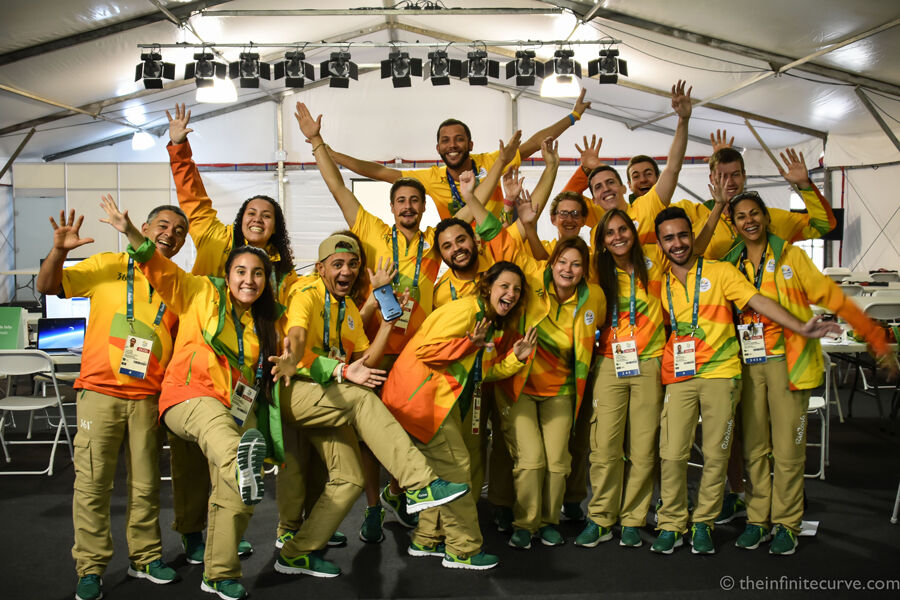
I got to interview some archery deities, Park Sung-Hyun and Park Kyung-Mo, who were there to commentate for Korean TV. Sung-Hyun was a more imposing, twitchy presence than her husband, and sat coiled like a spring on her chair.
Despite apparently ruling out any comebacks, the best bit came at the end of the conversation when I asked her if she thought the 1440 Round world record she set in 2004 – the most legendary and enduring record in the sport – would ever be broken.
“Yes, if I come back and do it,” she said, jiggling her legs.
You got the distinct impression she wanted to run back out there, grab a bow and show everyone, once again, how it’s done.
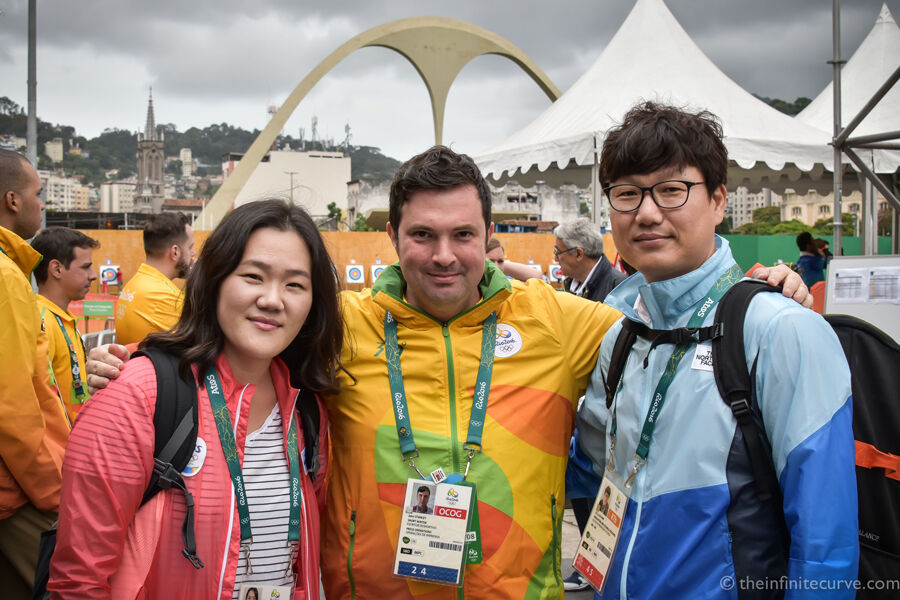
I even break my no-selfies-with-athletes rule for the duo, and my timeline was filled with near-identical copies of the above photo as everyone took their turn. Imagine if you were working the Olympic tennis and Andre Agassi and Steffi Graf turned up backstage.
You would, wouldn’t you?
The Russian women’s team easily won the best team strip awards, with this constructivist design. The three of them didn’t even know if they would be competing a few weeks beforehand, with the scandals that unfolded shortly before the Games.
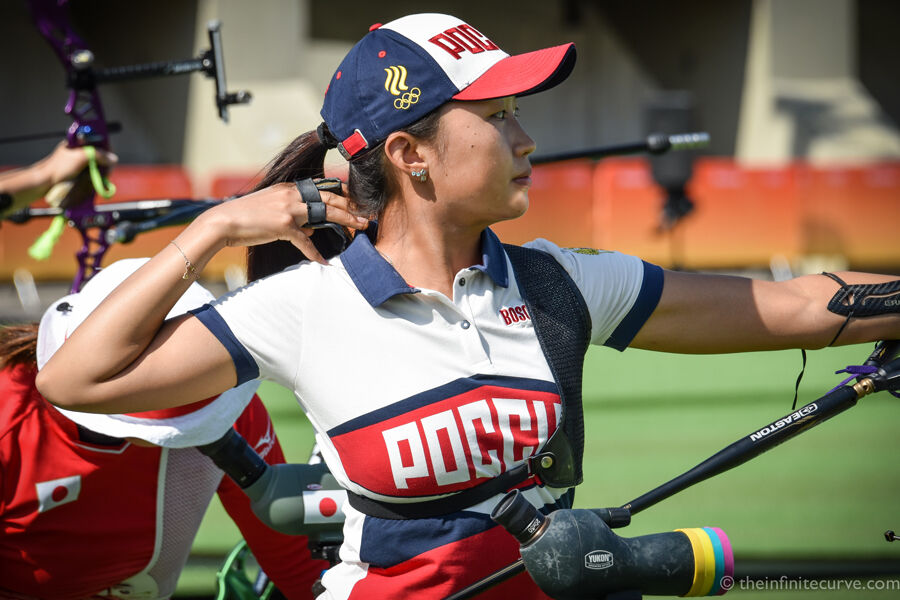
After the ranking round, a journalist next to me on the rail who asked the Russian girls some rather too probing questions was met with a cheery, “we’ve got to go now, bye,” in a perfect English accent, before they all stalked off.
Karma, from Bhutan, in her match with Tuiana Dashidorzhieva of Russia. At the back, you can see the short labyrinth that is the mixed zone, a feature of all Olympic venues, which the athletes have to go through after competing to face the media, who take their turn in a strict pecking order.
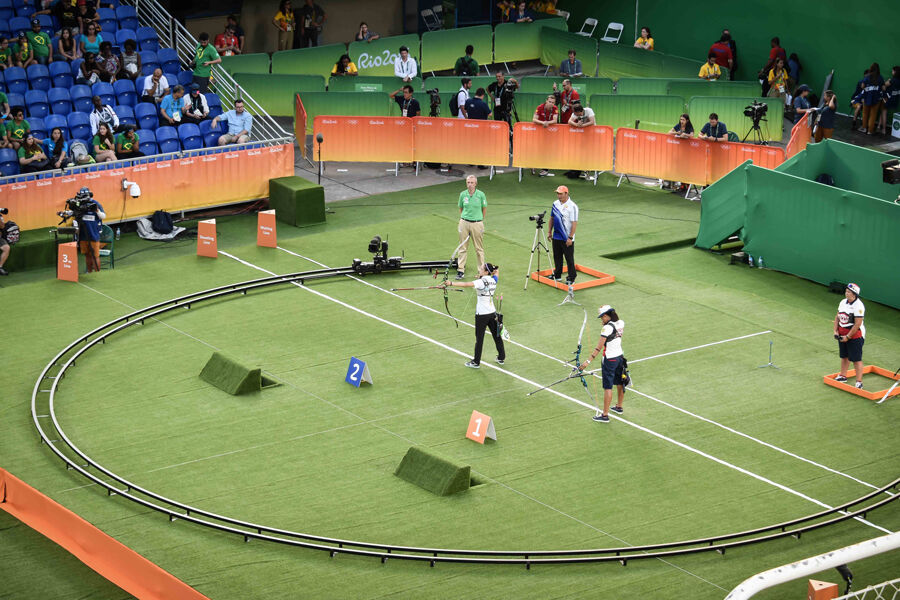
Whatever state you were in, however badly it went, you had to go through and face the press, and I still remember this quote gathered by one of my diligent student reporters (which was, naturally, spiked by the editorial desk).
Choi Misun (KOR): (made no statement after crying and remaining silent for 14 seconds)
Translations were handled by teams of volunteers, and we had usually just one who could speak Korean, with various other journalists trying to prise her away from us for their own material. We flattered and plied her with drinks and sweets and sometimes had to literally hang on to her in the mixed zone to get what we needed.
The mixed zone wasn’t much fun to stand in, as it was the corner of the venue plagued by mosquitos, despite a nightly fumigation.
With everyone naturally worried about Zika, the air thrummed with bug spray and the sound of hands slapping at exposed skin. Eventually, we got a couple of electric zapper bats to start attacking the hordes, and everyone took their turn on an anti-mosquito spree – no-one more enthusiastic than Juan Carlos Holgado, gold medal, Barcelona, 1992.
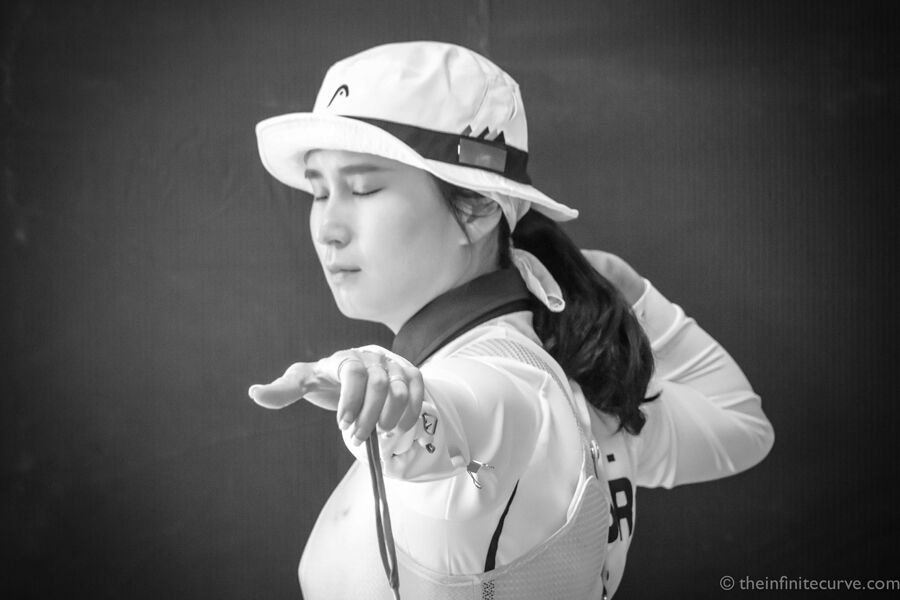
The call room was where the athletes waited for their matches to begin; all Olympic venues have them.
The call room at the archery venue wasn’t even a room, just a tiny concrete passageway underneath one of the eastern stands, with a false ‘wall’ on one side. Athletes were marshalled in from the practice range at the allotted time and told to wait. Like most hinterlands, it was not pretty: cheap chairs, fire extinguishers.
But it was, probably, where more than a few matches were won and lost.
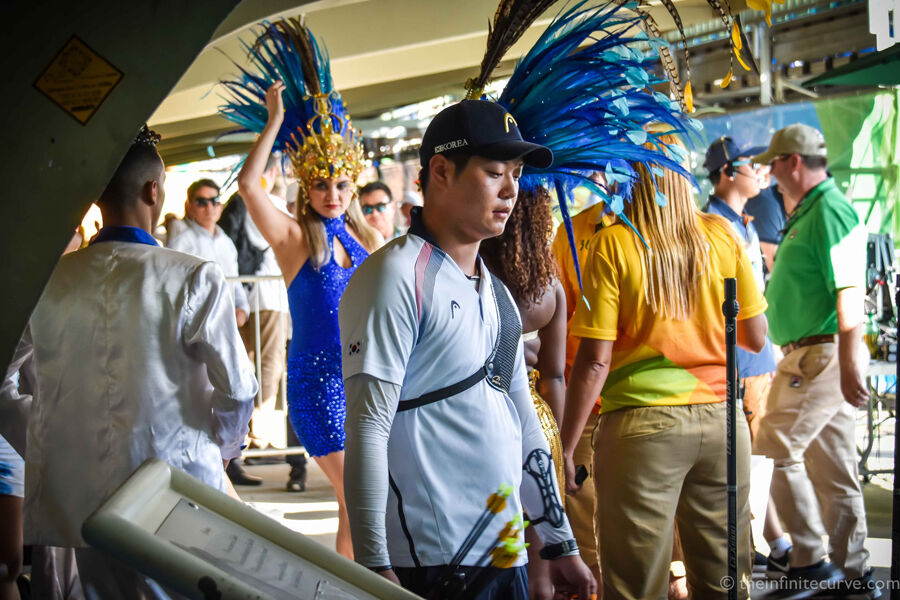
A minute or two before the start of each contest, the last bits of empty space in the call room were filled with a dozen samba drummers and dancers, there to play the archers onto the stage.
Standing in their coloured finery, feathers and sequins flashing, the finest target archers in the world looked bemusedly at them, and they looked bemusedly back, and nothing seemed to make a lot of sense.
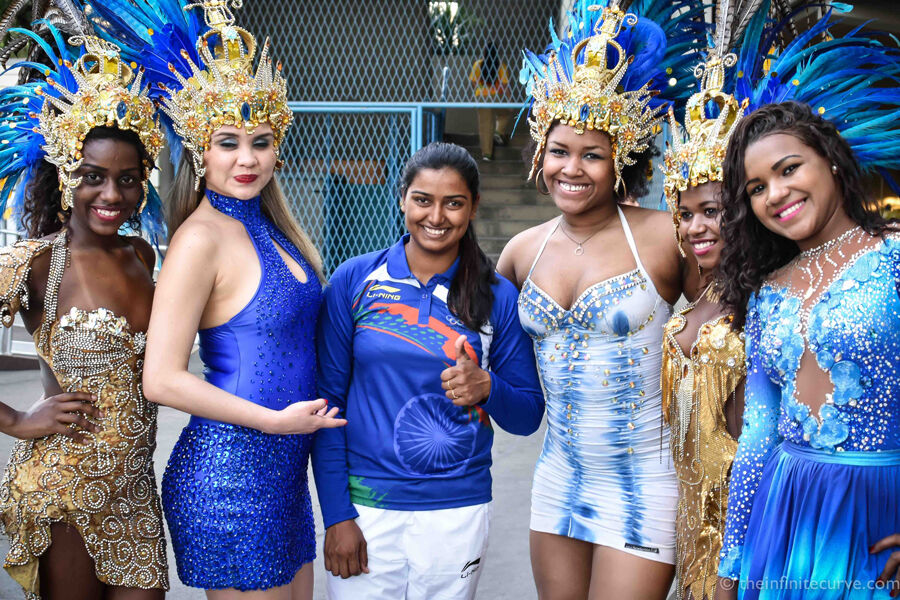
Kang Un Ju was the sole representative of the Democratic People’s Republic of Korea, and qualified well. Somewhat inevitably, she had to face a South Korean, Chang Hye Jin, in the third round, in a match she lost 6-2.
She was the only athlete I saw actually sprint through the mixed zone afterwards with two dozen Korean journalists literally screaming at her for a quote and gunning the shutters on their Canons.
Chang Hye Jin’s dry-as-a-bone quote afterwards: “It was a match I was rather expected to win.” Probably the understatement of the tournament.
If I could have asked her, I’m sure Kang Un Ju would have said exactly the same thing.
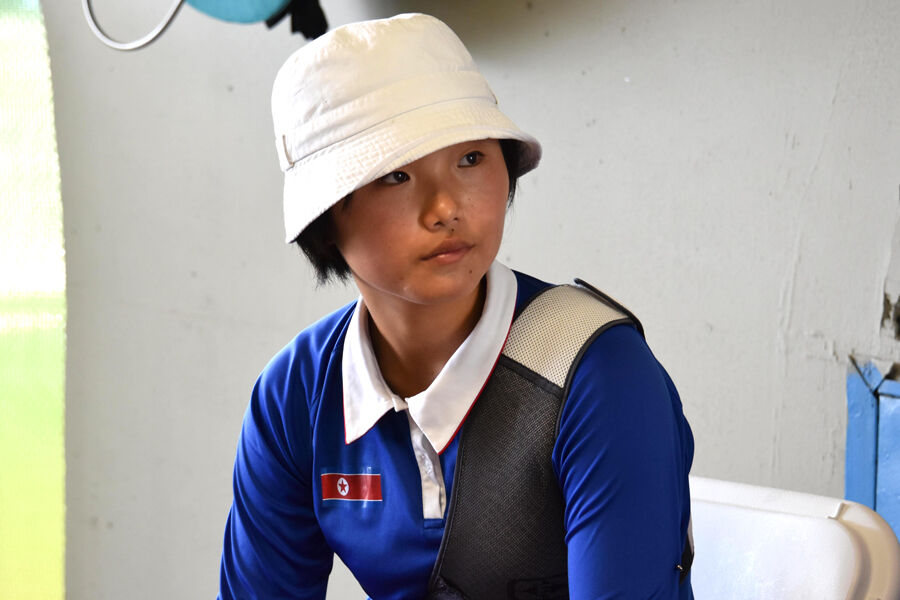
The Paralympics were, for the media, the same process as the Olympics, with perhaps a little less pressure on everyone. With the TV cameras removed, everyone visibly relaxed. Our press team was joined by Emily, a Paralympic volunteer of indefatigable energy.
It’s good to be shown up by people from time to time.
Brazil was gradually coming out of winter, the weather was a little warmer, and the atmosphere was relaxed and positive – a great contrast to the tense and often rainy Olympics. The big crowds at weekends helped; the Paralympics were better attended across the board.
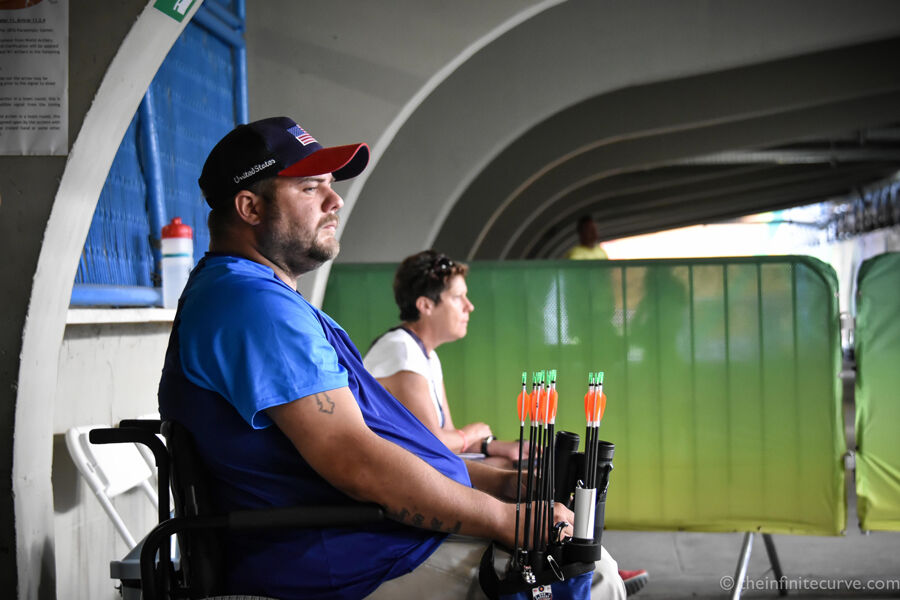
I was pleased and proud to meet and interview people like Lia Coryell, Matt Stutzman, and Andre Shelby, three people for whom the word ‘inspiring’ doesn’t really do things justice. The high point was archer David Drahoninsky proposing to his girlfriend live on stage after his match, giving me a well syndicated story.
Great Britain had a spectacular Paralympics, scoring a clean sweep of the women’s wheelchair medals on the Saturday morning. It seems the Brazilians tampered with the harmonic progression underneath the melody of the national anthem, God Save The Queen, though.
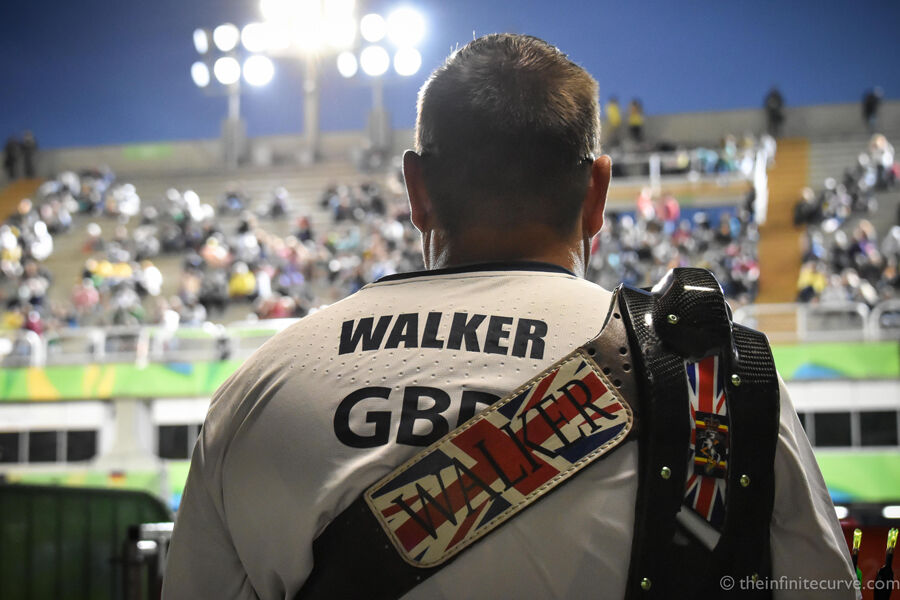
That same night, me and several of the media team get stopped by the Brazilian police – at the point of four assault rifles – in a case of mistaken identity. We get out of our taxi, one by one, with our hands up, like in a film, and show our Paralympic accreditations.
When it was finally realised that we are just media, visiting for the Games, the leader of the group eventually lets us off with a, ‘how you like Brazil, huh?’. We yelp, ‘it’s great!’ and drive off, shaking just a little bit.
Quite a lot of caipirinhas got drunk that night.
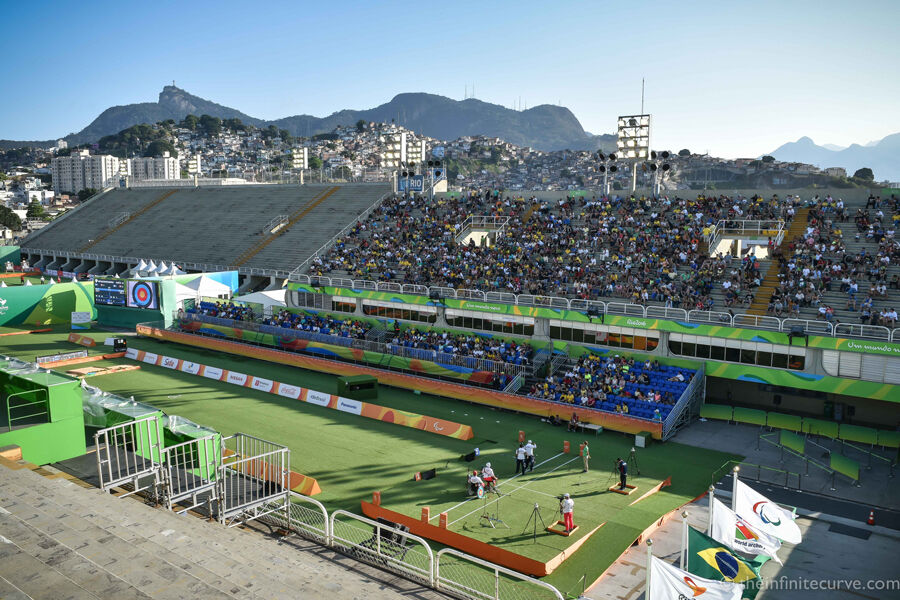
It was a long trip, but I was pretty much in tears at the airport gate on my way back to London.
I count myself very lucky indeed to be part of such an event, and able to visit such a great country with some of the most wonderful people I’ve ever met – and Rio itself is a extraordinary place, rugged and difficult, but sublimely beautiful, with a manic, creative energy unlike anywhere else on earth.
It was a pleasure; the brilliant Olympians and Paralympians I met, the great people I got to work with, and the beautiful staff and volunteers, all working to make something amazing. Obrigado to you all.
John Stanley worked as archery’s sport specialist in the Olympic News Service during the summer of 2016 in Rio de Janeiro at the Olympic and Paralympic Games.
